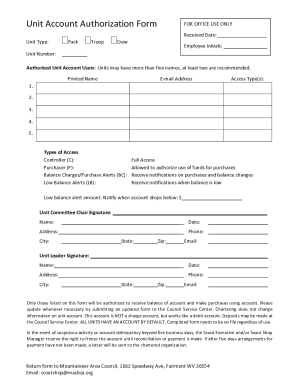This operate brings an essential consensus on the worth of objects, enabling a clear https://www.quickbooks-payroll.org/, objective comparability between various commodities and services. Whereas navigating via the huge world of economics, it’s necessary to delve into the fundamental ideas of ‘Retailer of Value’ and ‘Unit of Account’. These phrases are very important cogs within the gears of financial buildings and mechanisms. Unravelling their significance deepens our understanding of commerce, finance and commerce. Gaining insight into these prime economic features could be instrumental in comprehending the pivotal role cash plays in our society. Without the unit of account characteristic, the economic panorama can be chaotic – think about having to barter goods or services without a normal worth measurement!
This perform permits for easy comparability and valuation, making it essential for financial transactions, pricing, and accounting. It helps people and companies determine how a lot one thing is worth, enabling more efficient decision-making in trade and finance. The idea of “Unit of Account” sits at the very foundation of any economic system. It’s the common language we use to measure the worth of every thing we purchase, sell, or own.
Associated Matters To Economics Of Cash
A good unit of account possesses specific qualities that improve its effectiveness in measuring value. Empowering students and professionals with clear and concise explanations for a greater understanding of monetary terms. Explore the Unit of Account Guide for insights into its role in measuring value. Discover the crucial characteristics—scarcity, sturdiness, acceptability, portability, divisibility, and fungibility—that outline an efficient unit. In conclusion, the best unit of account is dependent upon components like stability, reliability, acceptance and trust within the unit of account and its issuer. Quickonomics supplies free entry to schooling on economic topics to everyone all over the world.

It’s not simply companies that benefit from the unit of account function of cash. Governments rely on it for budgeting, tax collection, and to measure nationwide financial indicators like Gross Domestic Product (GDP). For individuals, it simplifies private budgeting, investment evaluation, and even comparison purchasing. So the unit of account orchestrates a concord that permits the environment friendly and efficient functioning of the economy. As a ‘Unit of Account’, cash supplies a common normal of measurement in economic contexts.
It gives assurance to people who the money they save at present could have a similar purchasing power sooner or later. The ‘Retailer of Worth’ operate of cash ties intently with its capability to function a standard ‘Unit of Account’. With Out the reliability of its worth – its capability to ‘store’ worth over time – confidence in cash as a ‘Unit of Account’ may diminish. In conclusion, the unit of account function underscores and enhances the opposite functions of cash, bringing synergies that facilitate efficient and effective economic interactions.

As a unit of account, the pound helps you quantify the value of your savings. As a retailer of value, it preserves this wealth over time for future usage, similar to for retirement or for an emergency. From a broader perspective, the Unit of Account avails a common base that aids in evaluating the worth of products and services, thereby facilitating trade in the marketplace.
This shared language simplifies comparisons and makes financial decision-making much easier. A unit of account is a standardized unit of measurement utilized in accounting to record and observe financial transactions. It is a tool unit of account definition used to assign a worth to goods and services and to facilitate transactions. A unit of account allows totally different goods and services to be in contrast and valued constantly. The unit of account plays a vital position in economics by offering a regular measure for valuing items and services.
Function Of Unit Of Account In Economics
Delving into the subject of macroeconomics, you’ll come throughout the term ‘Unit of Account’. As intricate as this term would possibly sound, it forms a key basis in understanding wider financial theories and fashions. This article goals to offer an informative and easily accessible rationalization for these delving into the fascinating world of financial ideas.
Can Commodity Cash Be Used As A Unit Of Account?
Subsequently, generally, individuals and companies use cash as a unit of account. Additionally, it makes it simpler for them to measure two completely different valued gadgets at par. Nevertheless, there are particular limitations to using money as a unit of account, given the frequent fluctuations that it witnessed. Sure, the buying power of a unit of account can change because of inflation or deflation, which impacts the measurement of value over time. By figuring out the value of varied assets in the identical unit, corresponding to foreign money, we are able to make informed decisions about our expenses, savings, and investments. A store of worth is an asset that may be saved, stored, and exchanged at a later time with no loss in its value.
- Policymakers would want to discover alternative strategies for managing financial development.
- It permits cash to maintain worth over time, facilitating saving, investing and planning for the lengthy run.
- This information aims to break down the concept into easy terms, helping you grasp its significance and application.
- Money is called a unit of account as a outcome of it serves as a typical standard for measuring the value of assets or companies.
It is used to assign a worth and to facilitate transactions by enabling the trade of 1 good or service for another. The medium of exchange operate of money permits it for use to buy goods and providers, facilitating trade and transactions within the economy. The ‘Unit of Account’ in macroeconomics refers to a standard numerical unit that businesses and people utilise to represent the real value or cost of products and providers.
